Moss gardens have a unique appeal that both captivates the senses and evokes a sense of tranquility and enchantment. These miniature landscapes composed of various moss species create a lush, green outlook that can convert any garden into a serene quiet haven as their unique and enthralling experience differs from traditional gardens.
In addition to their aesthetic appeal, moss gardens also bring numerous benefits to both the environment and our well-being. Their range of benefits includes environmental conservation, low maintenance, and the ability to thrive in various conditions.
There’s definitely a lot more to learn about moss gardens. So, here we go!
Qualities That Make Moss Gardens So Special
These gardens, also known as mossariums or moss terrariums, are carefully crafted landscapes that predominantly feature various moss species. Such gardens are typically created in shady areas with moist soil, replicating the natural environment where moss thrives. The dense, velvety texture of mosses, combined with their vibrant shades of green, creates a visually stunning and soothing effect.
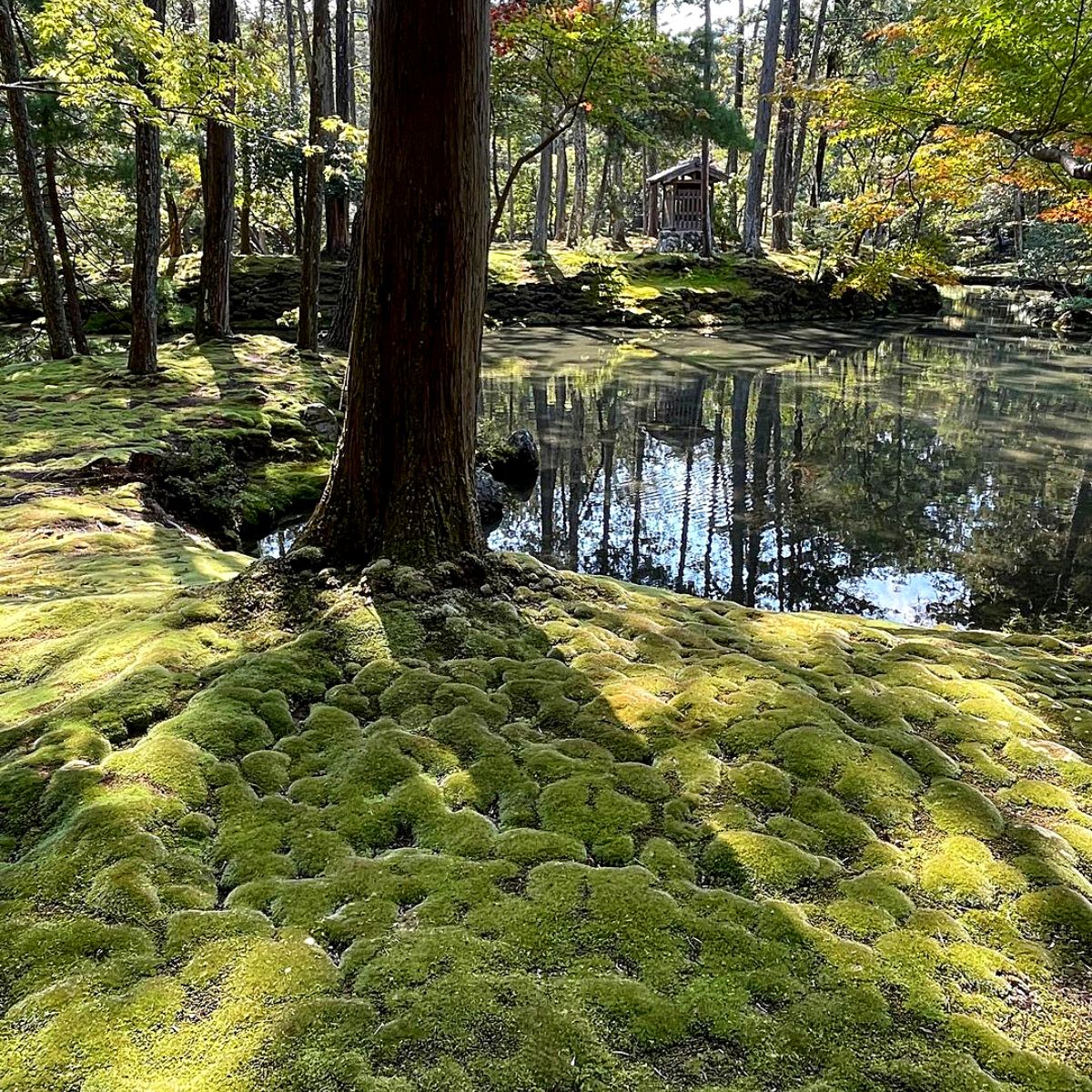
Moss gardens, which are also often referred to as moss scapes, moss lawns, or mossy landscapes, are a departure from the vibrant blooms and manicured hedges of conventional gardens. They are composed predominantly of different species of mosses, which are well-suited to creating a tranquil and lush atmosphere. They have a range of qualities that make them special.
One of the most significant qualities of moss gardens is how they provide a soothing and restful ambiance. The soft, velvety texture of moss underfoot and the rich green hues create an inviting space for relaxation and contemplation. Also, they have the ability to conserve water as they are highly efficient in retaining moisture, reducing the need for frequent irrigation.
Additionally, moss gardens contribute to the overall health of the ecosystem by acting as natural filters, purifying the air, and absorbing pollutants. They capture carbon dioxide, and in the same way, support local biodiversity by providing a habitat for beneficial insects
Their low height and minimal root systems make them excellent ground covers, preventing soil erosion. They also act as sponges, helping to absorb excess moisture and reduce stormwater runoff.

Mosses are also incredibly low-maintenance, requiring very little attention once established. They thrive in shady and moist conditions, making them an ideal choice for those looking to minimize the upkeep of their garden.
In addition, unlike many other plants that go dormant during certain seasons, mosses maintain their vibrancy throughout the year, ensuring a constant source of lush greenery.
Plus, the moss plants' ability to create dense mats can help control soil erosion, making them valuable for landscaping in areas with this concern.
What’s more, mosses can adapt to various environments and are resilient in challenging conditions, such as acidic soils and shade.
Qualities of Ideal Moss Garden Plants
While mosses collectively contribute to the charm of moss gardens, some moss species have particular qualities that make them stand out as ideal choices for creating these enchanting landscapes.
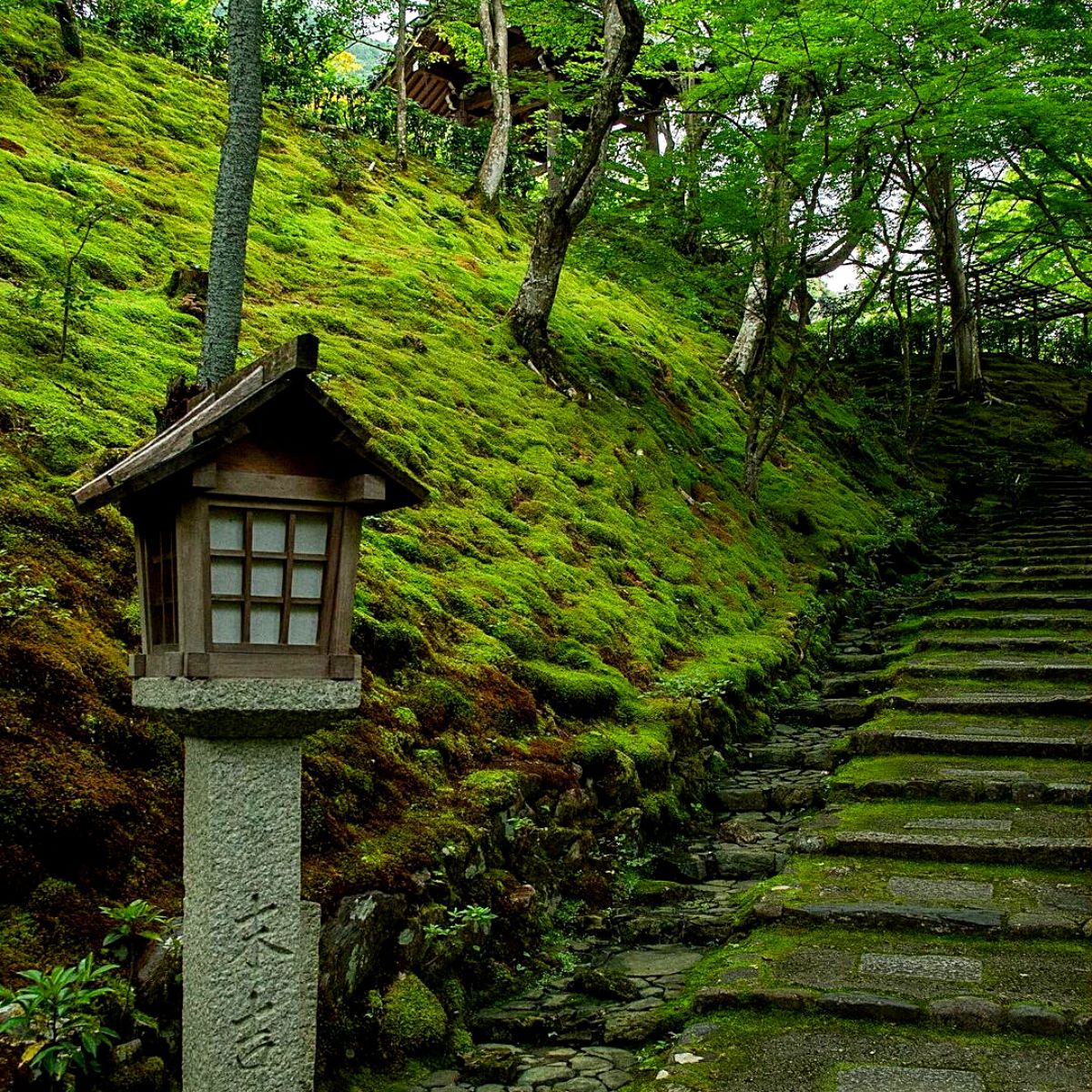
When selecting these plants for your garden, it is therefore essential to consider several factors. These include adaptability to local climate, growth rate, texture, color variation, and maintenance requirements. The ideal moss plants for a moss garden, therefore, exhibit the following qualities:
Lush and Dense Growth
The moss plants should have a dense growth habit to create a lush carpet-like effect in the garden. This quality enhances the visual appeal and adds depth to the landscape. By the same token, a mat formation is an ideal quality helped by the lush and dense growth. Ideal mosses need to be able to create dense, uniform mats that are highly desirable for covering large areas in a moss garden, providing a cohesive look.
Vibrant Green Color
The moss plant one uses in their garden should display a vibrant shade of green, ranging from emerald to chartreuse. The color variation adds visual interest and creates a pleasant blend within the garden, as well as with the other plants featured therein.
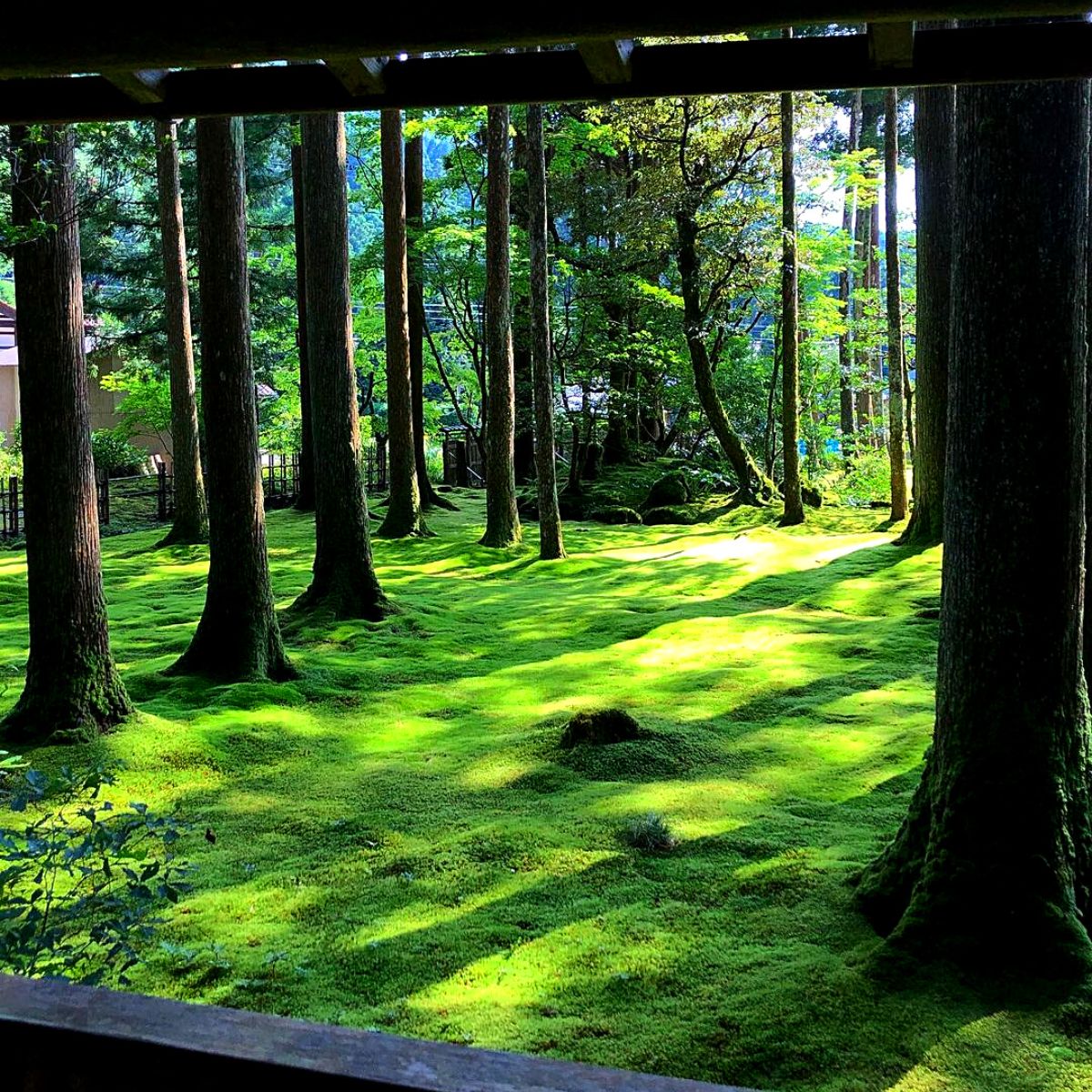
A Velvetiness Nature
A soft and velvety texture is one of the defining features of moss gardens. Ideal moss plants have a plush surface, creating a tactile and visual treat for anyone who encounters them. This velvetiness is quite a key aspect in ensuring the comfort of anyone who wanders, strolls, or just takes a rest in the garden
Adaptability to Different Conditions
For ideal results, select moss plants that can adapt to various growing conditions, including sunlight exposure, temperature, and soil moisture. Mosses should also be able to adapt to various soil types, allowing them to flourish in different garden settings. They should, similarly, be well-suited for shaded environments since they thrive in areas with minimal direct sunlight. These qualities ensure the longevity and resilience of your moss garden.
Low Maintenance
The perfect moss plant requires minimal upkeep. This quality makes them ideal for busy gardeners or those seeking a low-maintenance landscape. They should thrive in shade, require infrequent watering, and be resistant to pests and diseases. Plus, they should be robust enough to thrive without overly constant attention from the gardener.
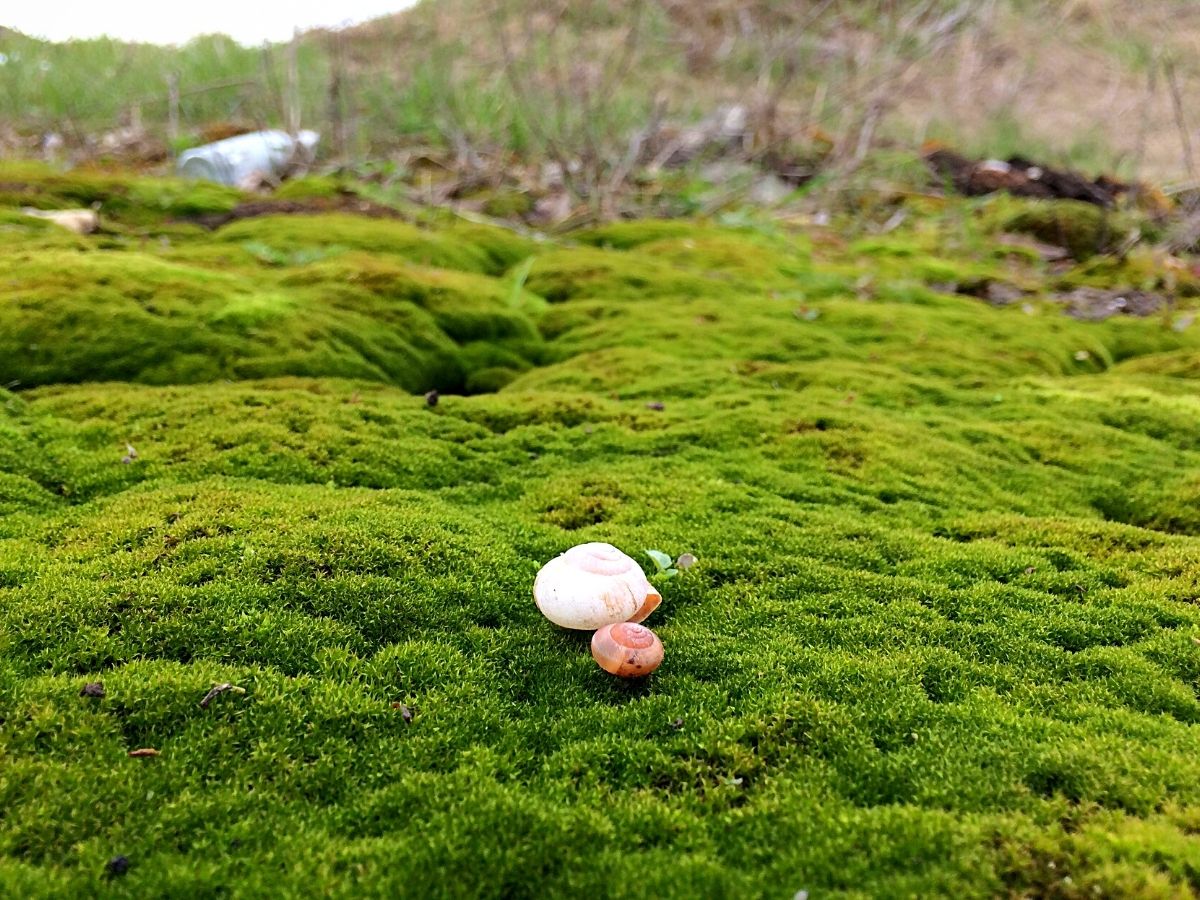
These 10 Moss Plants Are Perfect for Your Moss Garden
Well, now that you definitely know more about moss gardens and the ideal qualities of moss plants you need. How about the different moss varieties that would make your garden one to behold?
Cushion Moss (Leucobryum Glaucum)
With its dense, cushion-like growth habit and vibrant green color, cushion moss is an excellent choice for creating a lush carpet effect in your garden. It thrives in moist, shady areas and can tolerate varying light conditions.
True to its name, cushion moss forms soft, cushion-like mounds. Plus, its vibrant green color and low profile make it a great choice for creating textured ground cover in your garden. The surface of this moss is incredibly soft and comfortable underfoot, inviting you to linger in your garden.
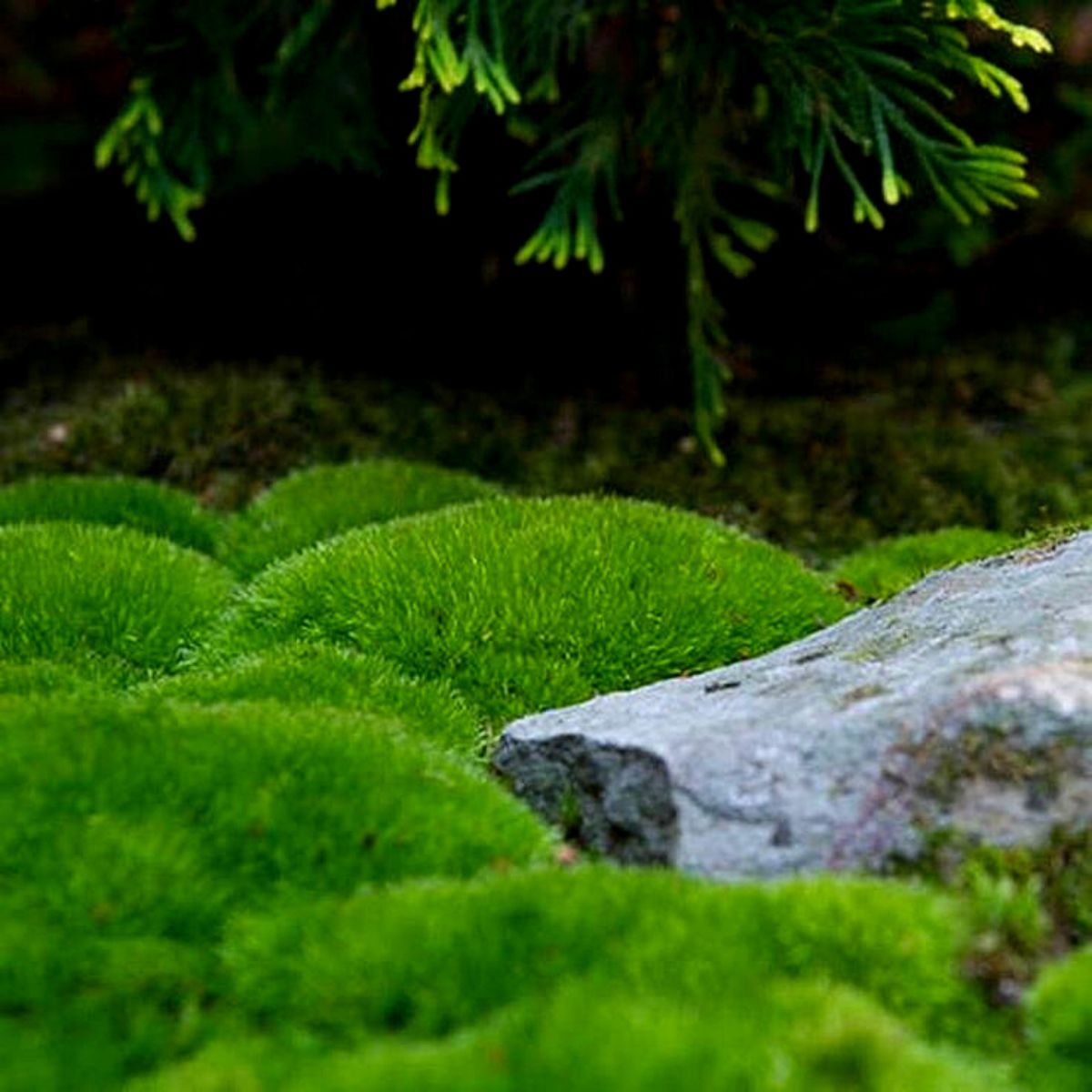
It is perfect for creating textured ground cover in your moss garden, adding depth and contrast.
Haircap Moss (Polytrichum Commune)
Haircap moss is named for the distinctive cap-like structures on its sporophytes, which resemble tiny, bristly hairs. It forms upright, tufted mounds with bright green, feather-like foliage.
Known for its distinctive upright growth habit, this moss plant adds vertical interest to your garden. Its deep green color and ability to retain moisture make it a popular choice for moss gardens. It reaches up to 20 inches in height, making this moss plant’s lush, emerald appearance and distinctive spore capsules an attractive centerpiece in the garden as well.
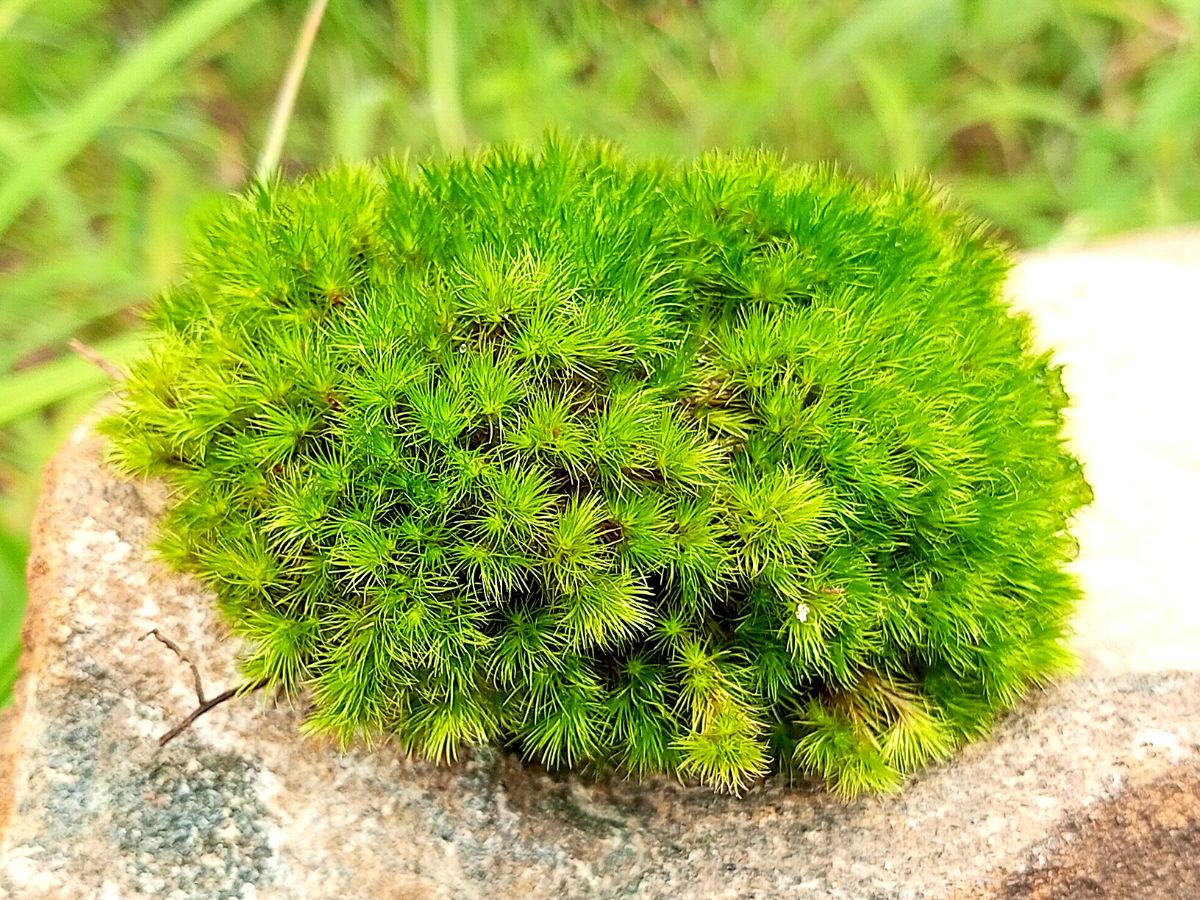
Also known as common great golden maidenhair, great goldilocks, common haircap moss, or common hair moss, this moss plant’s texture is soft to the touch and visually striking.
Sheet Moss (Hypnum Cupressiforme)
Commonly known as cypress-leaved plait-moss, sheet moss forms a smooth, even carpet of green, creating a timeless, classic look when it is grown in a moss garden.
The moss has slender, feathery branches that are usually light to dark green in color. Its leaves are scale-like and closely spaced, giving the plant a compact appearance. The tips of the branches often have small, cup-shaped structures called gemmae cups, which contain gemmae. These are the small reproductive structures that can detach and grow into new plants.
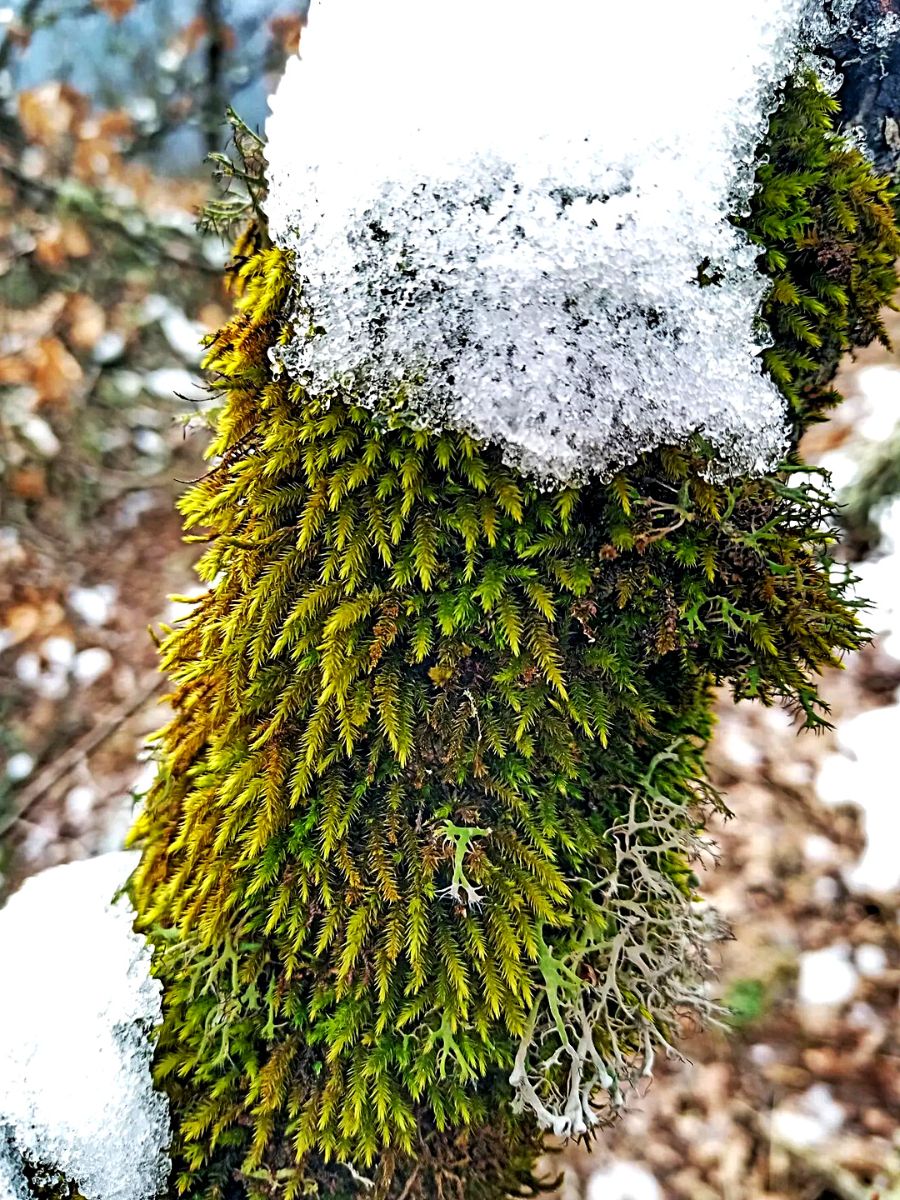
Sheet moss is highly adaptable and can grow in a variety of soil types. Plus, its delicate, feathery appearance and bright green color create a soft and inviting ambiance in the garden.
Its texture is soft and velvety, making it a comfortable choice for ground cover. It is therefore ideal for covering large areas, draping over stones, or covering logs, providing a cohesive and inviting aesthetic.
Fern Moss (Thuidium Delicatulum)
Resembling tiny fern fronds, from where it gets its name, this moss variety adds an elegant touch to your moss garden. Its delicate, lacy fronds and shade tolerance make it an ideal choice for shady areas.
Also called delicate fern moss or common fern moss, this moss variety grows densely, creating a lush carpet of greenery. This forms a dense, low mat with a delicate appearance giving it a soft and fine texture. These qualities add a touch of elegance to your garden.
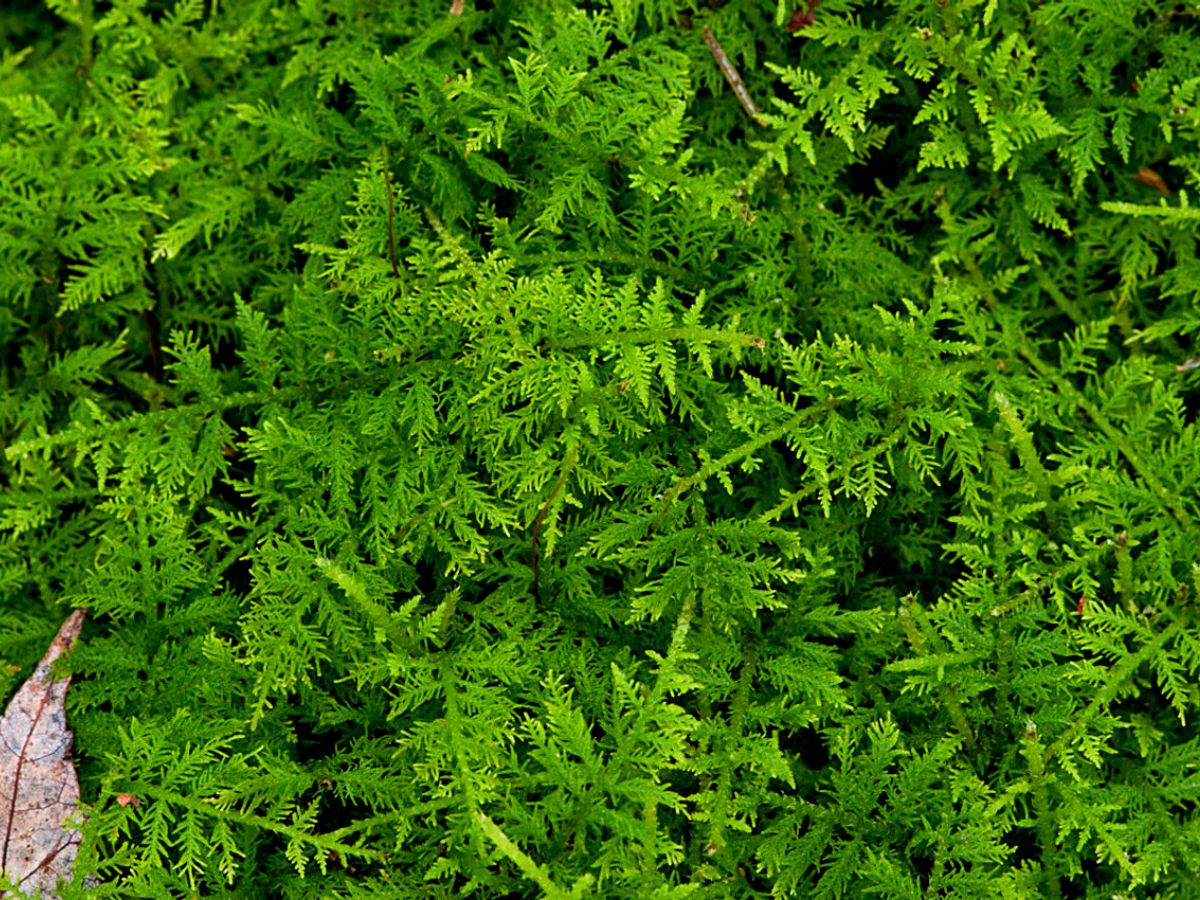
This moss plant’s low-profile growth also makes it ideal for creating a carpet-like ground cover in your moss garden.
Mood Moss (Dicranum Scoparium)
Mood moss is renowned for its unique and whimsical appearance, with its upright growth habit and feathery fronds. Named for its mood-altering tranquility, this moss is highly adaptable and forms a velvety carpet with a rich, vibrant green color, adding to the overall tranquility of your garden. It is highly adaptable and can thrive in a variety of conditions, but mostly prefers moist, shaded areas from where it adds a touch of charm to your moss garden.
This moss plant requires minimal maintenance, making it an excellent choice for low-maintenance moss gardens.
Sphagnum Moss
Often used for lining hanging baskets and in terrariums, sphagnum moss is incredibly moisture-retentive, making it an excellent choice for maintaining a humid and lush moss garden. This moss plant acts like a sponge, and hence it is perfect for maintaining a humid and lush moss garden.
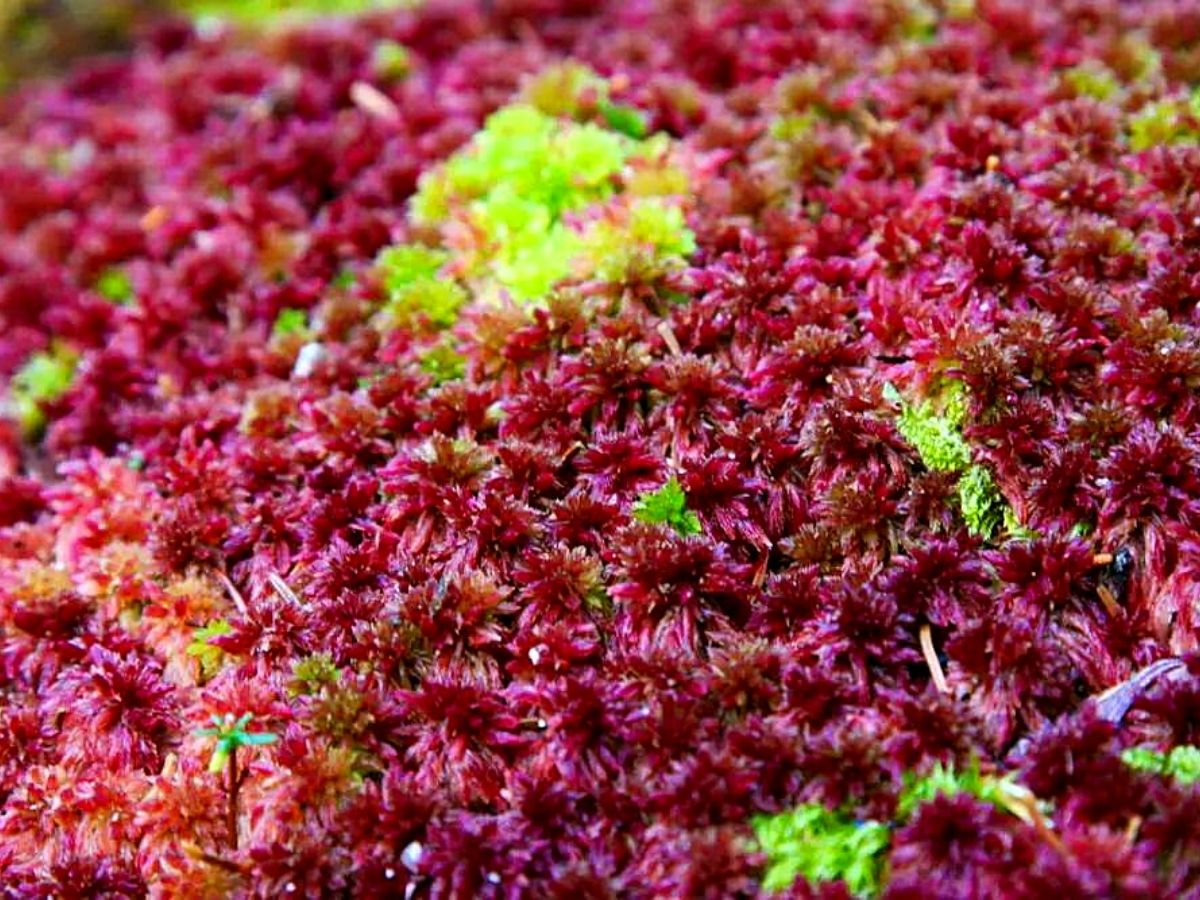
The texture of this moss plant is soft and cushiony, with a pale green to deep red color, and it often is used for lining hanging baskets, making terrariums, and providing a moist environment for certain other plants.
Reindeer Moss (Cladonia Rangiferina)
Despite its name, reindeer moss is not quite a true moss but rather a lichen. It is also called reindeer cup lichen, reindeer lichen, caribou moss, or grey reindeer lichen, and is a light-colored fruticose, cup lichen species in the family Cladoniaceae.
Reindeer moss’ distinctive coral-like structure and ability to grow in arid conditions make it an attractive addition to rock gardens or as an accent in moss gardens, where it adds a unique dimension with its distinctive texture and greyish-green color.
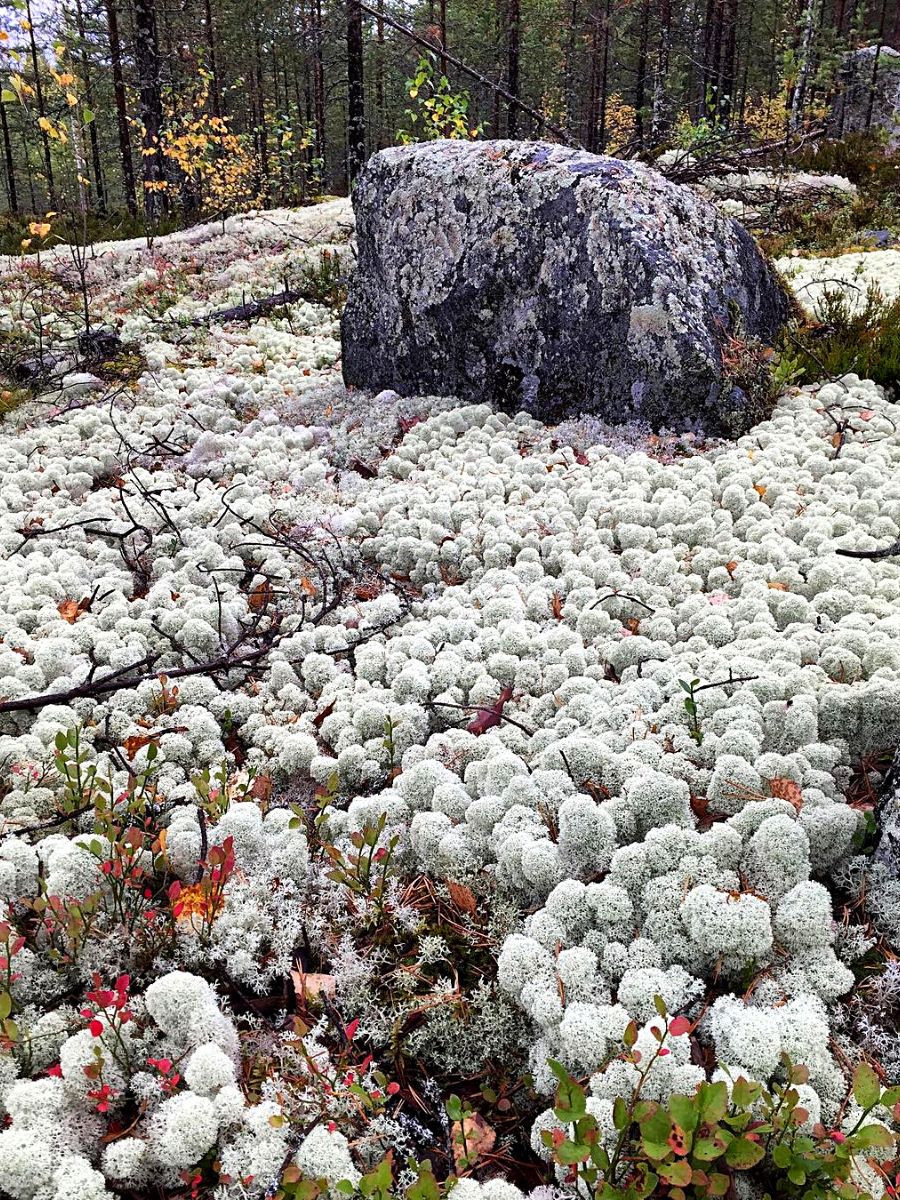
Because it contrasts beautifully with other mosses creating a pleasant visual impact, this plant is often used for crafting artistic arrangements in moss gardens.
Irish Moss (Sagina Subulata)
While, also, not a true moss, Irish moss is a popular ground cover in moss gardens. Its fine texture and bright green color give the garden a picturesque, fairy-tale quality. This plant is often used in moss gardens due to its resemblance to moss and its low-growing, compact habit. It has tiny white flowers and lush, emerald-green foliage which make it an ideal choice for creating a carpet-like effect.
Irish moss provides a lush, velvety feel that complements the serenity of a moss garden, its pleasant appearance gives the garden a dreamy quality, particularly when used between stepping stones or in rock gardens.
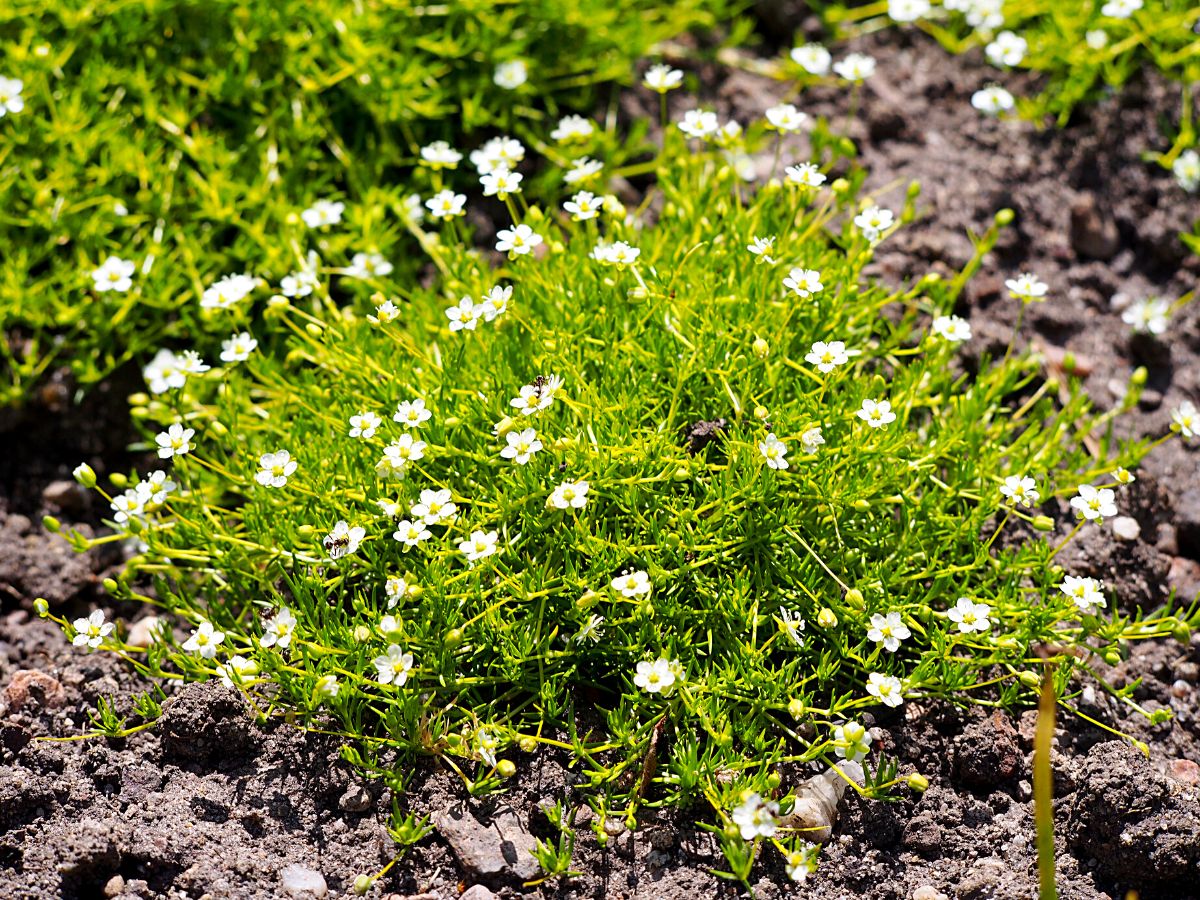
Plume Moss (Ptilium Crista-Castrensis)
Plume moss gets its name from its feather-like appearance. It is also known as feather moss, and the name refers to a group of moss species belonging to the genus Ptilium, commonly found in wet forests, bogs, swamps, and other similar habitats. This moss plant forms a dense, plush carpet of green and can handle light foot traffic, making it suitable for paths and areas where people may walk. Its feathery texture is soft to the touch thus inviting for garden visitors.
Plume mosses also play important ecological roles within their habitats. They help retain moisture in the soil, regulate water flow, and provide shelter and food for various organisms, such as insects and small invertebrates. Additionally, these mosses contribute to carbon sequestration and nutrient cycling in ecosystems.
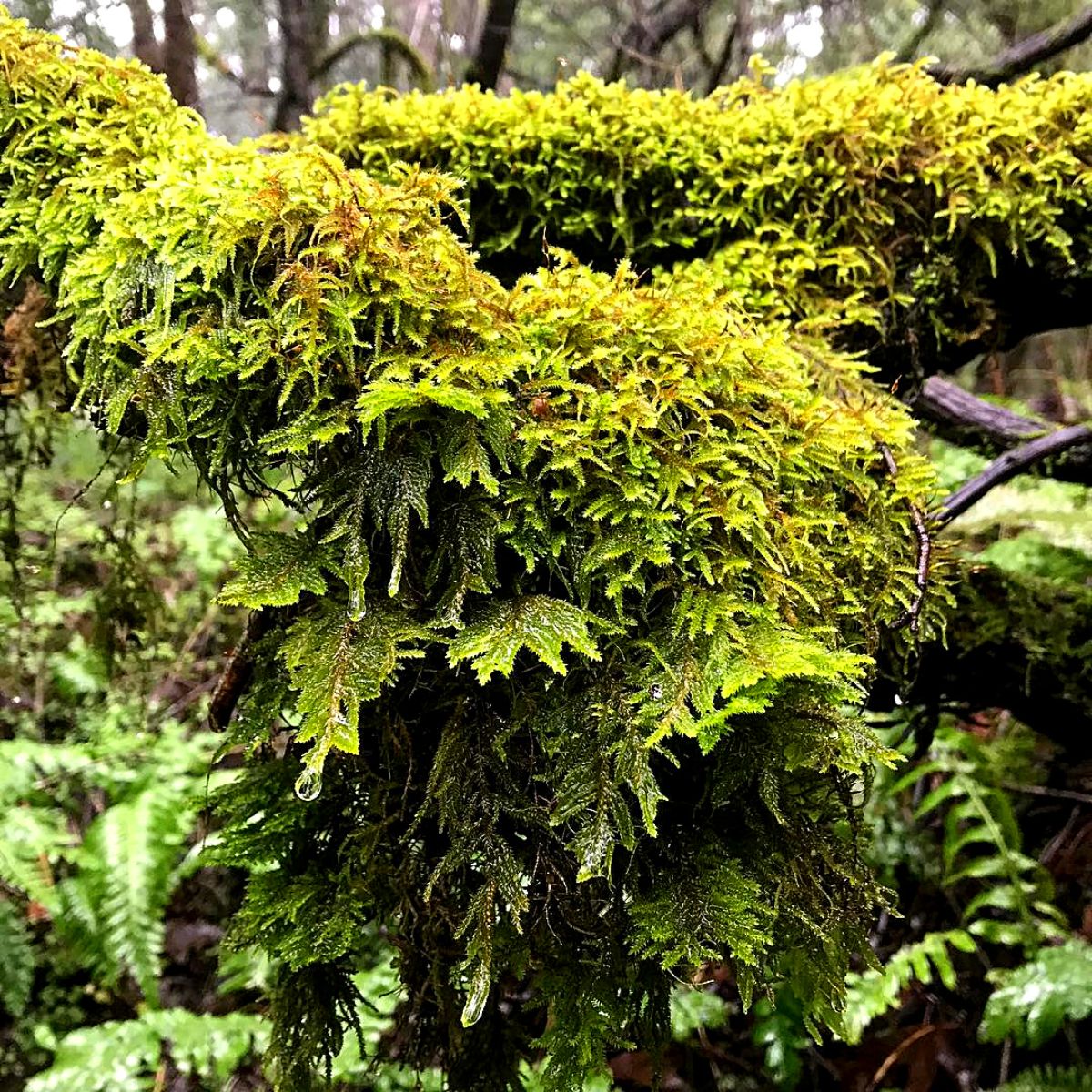
Wall Screw Moss (Tortula Muralis)
Wall Screw Moss, also known as Tortula muralis, can be a fantastic addition to a moss garden for several reasons. This moss variety has a distinctive look with its star-shaped leaflets and vibrant green color. The triangular shape of its leaves adds visual interest and texture to the moss garden, which creates an eye-catching display.
The moss variety is also adaptable to different growing conditions. It can thrive in both full sun and partial shade, making it versatile for various areas within your moss garden. Its ability to grow on vertical surfaces such as walls, rocks, and tree trunks adds a dynamic element to the garden design.
It is also known for its resilience and ability to withstand challenging conditions. It can tolerate periods of drought and quickly rehydrate when water becomes available. This resilience makes it a reliable addition to moss gardens, especially in areas with fluctuating environmental conditions.
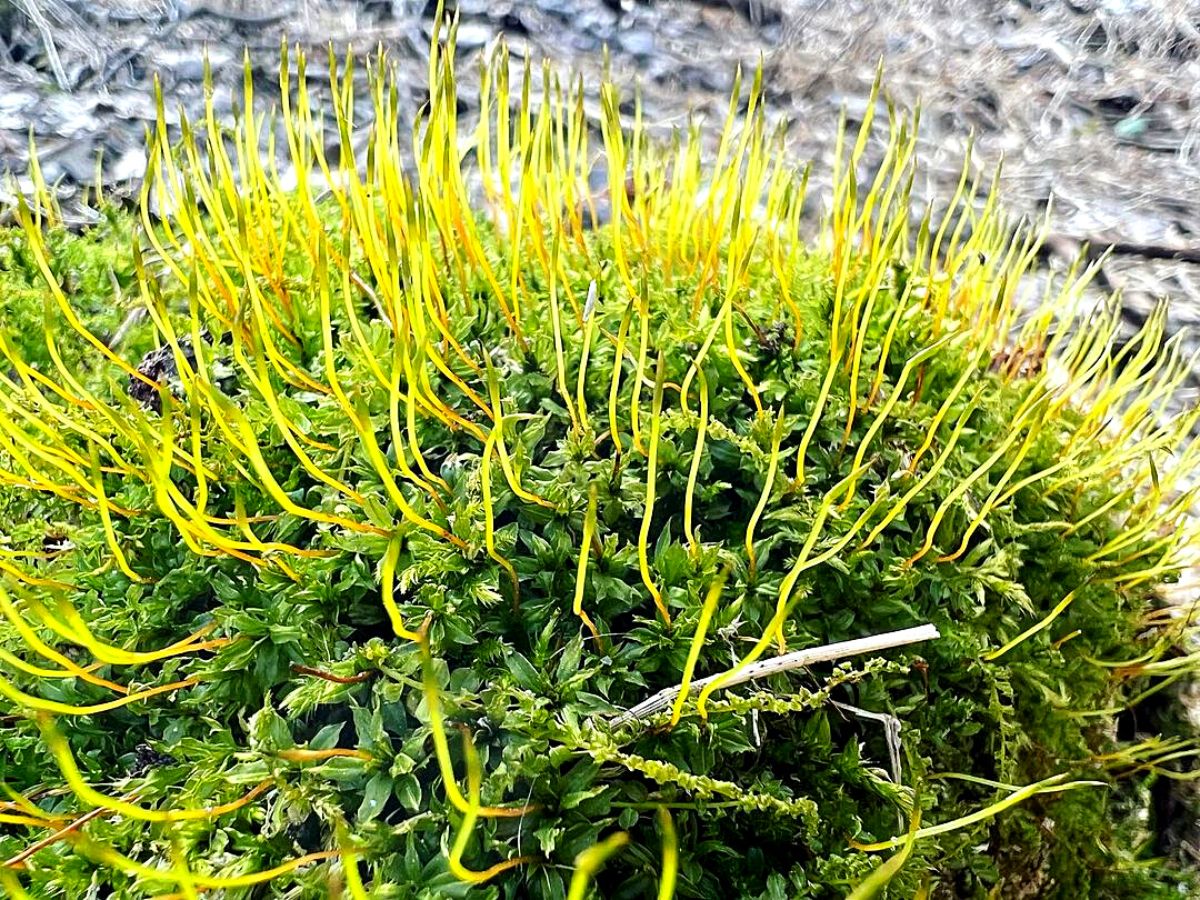
Plus, this relatively low-maintenance moss has the ability to firmly attach itself to surfaces, which can be advantageous in a moss garden. It can grow on vertical or sloping surfaces, such as walls or rocks, adding an interesting vertical dimension to the garden design.
Moss Gardens Are Not About Mere Aesthetics but Also Ecology Conservation
Creating these gardens is a delightful way to introduce a touch of enchantment and serenity to the outdoor space. This is achievable by selecting the ideal moss plant with lush and dense growth, vibrant green colors, adaptability, and low maintenance requirements.
A moss garden in your landscape not only adds visual interest and a touch of natural beauty but also promotes environmental sustainability and conservation in different ways.
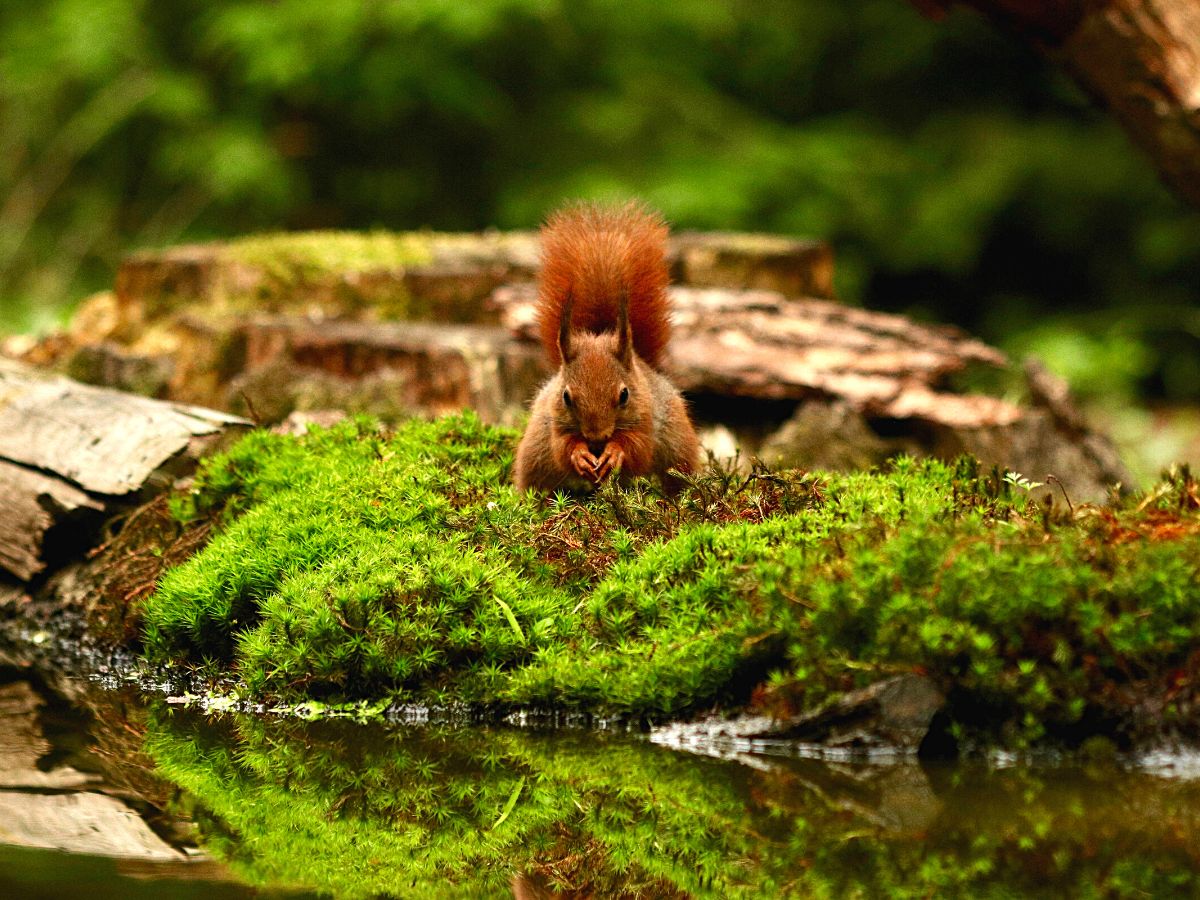
How about you create one now, and introduce these plants therein?
Feature image by wirestock, and header image by Wikimedia Commons




